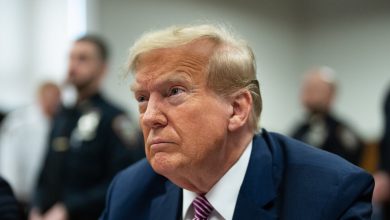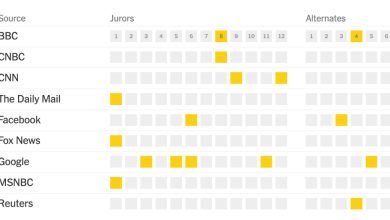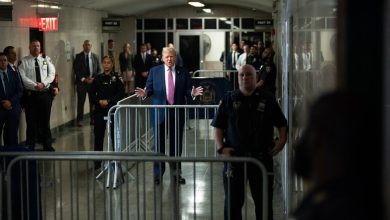Javier Milei Is a New Prophet of Apocalyptic Capitalism

In Davos, Switzerland, this January, a new icon of capitalist resentment took the stage. President Javier Milei of Argentina won a landslide victory in November on a platform of unapologetic libertarian economics and a campaign of ready-to-meme speeches and interviews. Already, his chain saw agenda has been hitting some predictable roadblocks at home — legislative resistance, pushback from unions and (sometimes violent) public protest. But he arrived in the Alps very much in character, looking like a future world leader hologram projected from a certain corner of billionaire-brain social media.
“Today I am here to tell you that the Western world is in danger,” Milei began. “And it is in danger because those who are supposed to defend the values of the West are co-opted by a vision of the world that inexorably leads to socialism and thereby to poverty.” He meant the belief that governments should try to help people.
Milei, a longtime economist, spoke in an academic monotone, but his analysis was vehement, almost a mirror image of the rhetoric Greta Thunberg used when announcing herself and her brand of climate alarm at Davos five years earlier. Spain’s El País called the speech “the apocalypse according to Javier Milei,” and for 23 minutes he gave a pretty millenarian account of the precarious state of the global free market system, as he saw it, which was losing its battle, he said, against the forces of collectivism, social justice, environmentalism and feminism, which he grouped as forces of inevitable immiseration. State power was the source of all the world’s problems, Milei said, all tax was coercion, and all market outcomes just. Those assembled at the World Economic Forum had been seduced by neo-Marxism, and the war on progress and achievement had been essentially started by the women’s movement (exemplified by what he called the “bloody abortion agenda”).
Hyperbole is not rare in geopolitics, but even in a time of tumult, it is striking to see an outspoken anarcho-capitalist in the role of head of state; he is certainly the first avowed anarchist to be running a large modern government and may well be the first genuine libertarian to do so, too. In a gesture of pragmatism, Milei has taken to describing his ideology as “minarchist,” meaning that he would like to preserve only the defense and law-enforcement functions of the state. But in Argentina he has revved chain saws at rallies and once dressed as an ideological superhero of his own devising, General AnCap. And in positioning himself as a hands-off prophet at Davos, he was not afraid to look like a libertarian troll. Between neo-Keynesians and Nazis, he declared, “there are no major differences.” The same went for social democrats and fascists, progressives and communists, populists and globalists — all just different shades of statists aiming for total social control.
He was speaking as an Argentine, contorting his country’s economic history into a neat ideological narrative. But he was at Davos, he said, to offer the same prescription to the rest of the world, projecting a global vision combining entrepreneurial heroism and the end of the state as we know it — or, as he put it, “to invite the Western world to get back on the path to prosperity.”
And he was applauded — not by everyone but by many. The Wall Street Journal published an excerpt from the speech and gushed, “Milei gives the Davos crowd a spine transplant.” The conservative historian Niall Ferguson called the lecture “a magnificent defense of individual liberty and the free market economy.” The venture capitalist Marc Andreessen also celebrated Milei’s appearance, as did Elon Musk, who meme-tweeted an image of a couple having sex while watching the president pontificate onstage (commenting, “so hot rn”).



